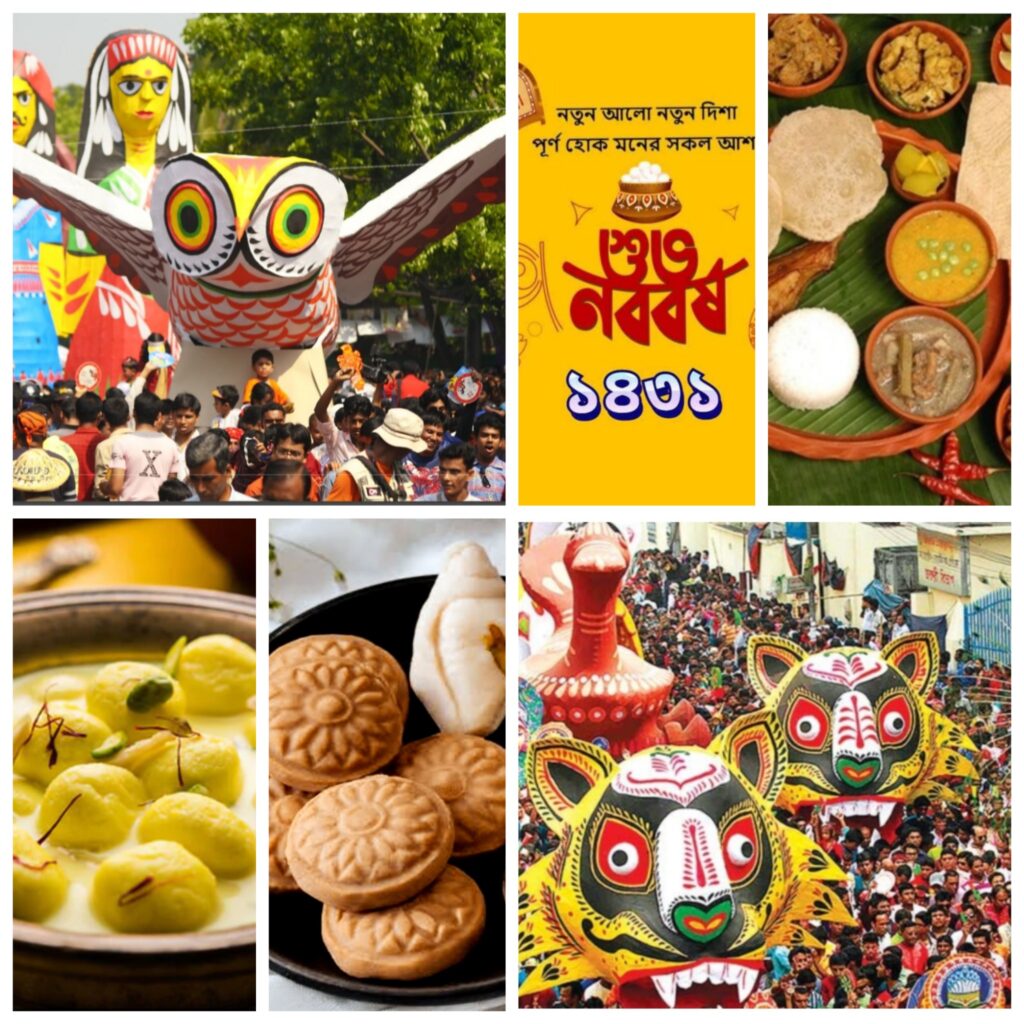Manashimaya

For Bengali populations worldwide Pohela Boishakh, the colorful Bengali New Year, heralds the start of a new calendar year. It’s a season of exuberant celebration, cultural events, and rekindled optimism for the coming year.
The term “Poila Baisakh” holds significant cultural and linguistic meaning in Bengali. “Poila” translates to “first” or “first day,” while “Baisakh” refers to the first month of the Bengali calendar. Therefore, “Poila Baisakh” literally means “the first day of the month of Baisakh.”
The Pohela Boishakh date in 2024 is: By convention, Pohela Boishakh falls on April 14 of the Gregorian calendar. The lunar calendar, however, may cause some tiny variations in the actual date. Pohela Boishakh was observed this year on April 14, 2024, the first day of the Bengali calendar year 1429.
For Bengalis, worldwide, Pohela Boishakh is a deeply significant historical and cultural event. It represents fresh starts, wealth, and unity among the people. Pohela Boishakh is celebrated with enthusiasm and zest and is well ingrained in Bengali tradition.
Customs & Traditions:
Festive Attire:
People dress in traditional Bengali clothing, with men and women dressing in kurta-pajamas or panjabis and ladies wearing vibrant sarees. The vivid hues stand for happiness and hope for the next year.

Mangal Shobhajatra: The “Mangal Shobhajatra,” a vibrant procession, in numerous cities and towns, is one of the most well-known customs of Pohela Boishakh. With vibrant masks and banners, participants march through the streets, signifying the victory of good over evil and the spirit of unity.
Traditional Food: Delectable traditional food is a must-have for every Bengali festivity. Family and friends make and enjoy special delicacies like Chingri Maach (prawn curry), Ilish Maach (hilsa fish), and desserts like Sandesh and Roshogolla.
Cultural Performances: Pohela Boishakh is a period for artistic expression and cultural performances. The joyful atmosphere is enhanced by folk music, dance performances, and literary and poetic recitations, all of which highlight Bengal’s rich legacy.
Fairs and Markets: In different parts of Bengal, fairs and markets appear on Pohela Boishakh, providing traditional arts, crafts, and delicacies. These fairs turn into bustling centers that draw visitors of all ages for entertainment and shopping.
In summary:
Pohela Boishakh is thus, a celebration of Bengali identity, culture, and legacy rather than just a festival. It unites people despite differences in age, class standing, and religion. Let us greet the Bengali New Year 1429 with joy, togetherness, and hope for the future as we embrace the essence of Pohela Boishakh.
To everyone, a happy Pohela Boishakh 2024! Shubho Noboborsho
